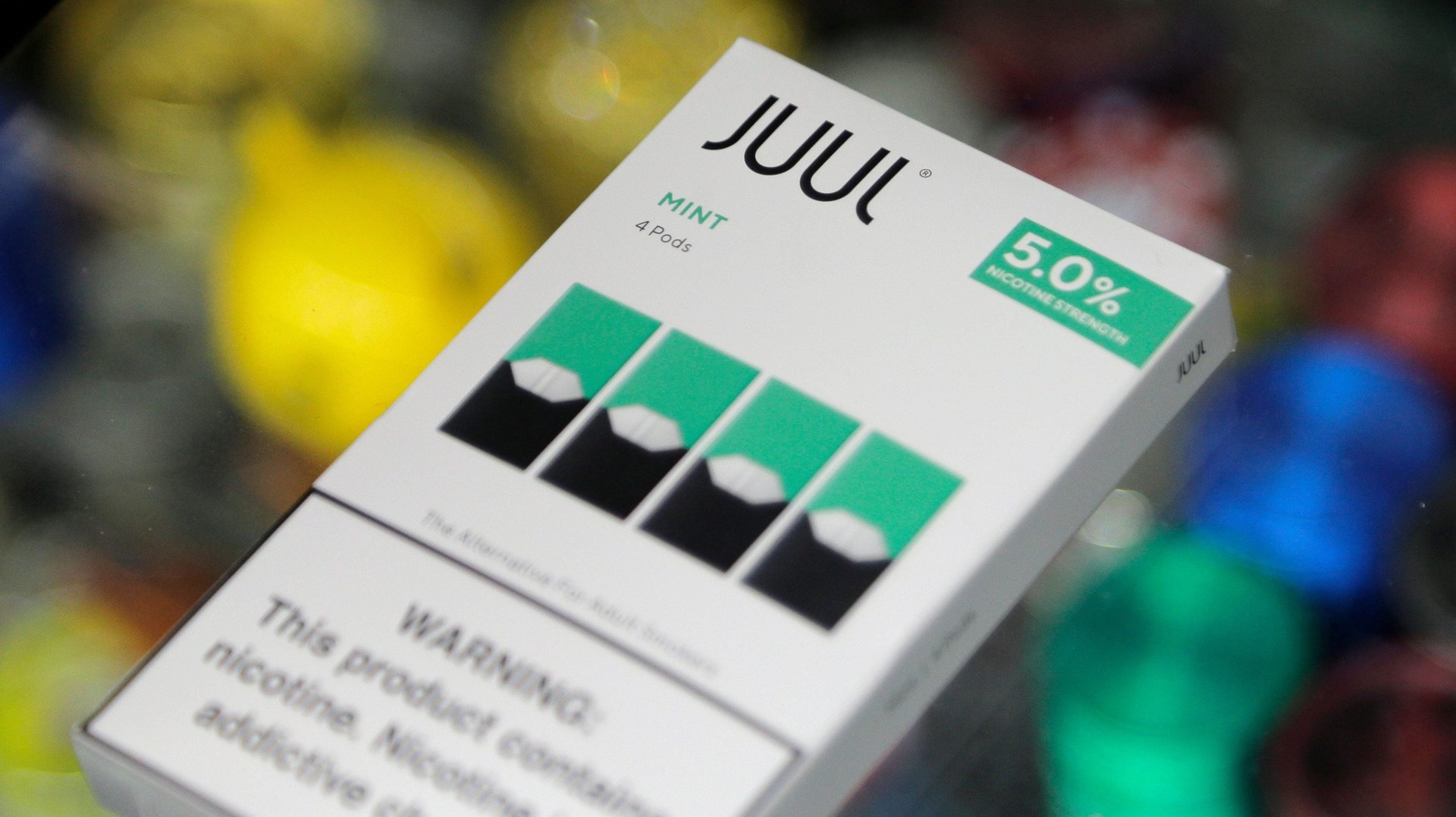Juul is going to have a hard time hiring from a workforce that values authenticity
It’s probably safe to assume recruiters don’t expect clapbacks when they approach potential employees. But for some companies, that may soon change.


It’s probably safe to assume recruiters don’t expect clapbacks when they approach potential employees. But for some companies, that may soon change.
On Twitter this week, Katie Jacobs Stanton, chief marketing officer for genetics-testing company Color, shared her politely sarcastic response to a recruiter who approached her on behalf of Juul, the maker of e-cigarettes that—more than other vaporizer company—has arguably turned millions of teenagers into nicotine addicts (paywall).
Stanton, who worked at Twitter for six years before joining Color in 2016, and previously held posts at the White House, Google, and Yahoo, was not the only executive who rejected the Juul recruiter out of a sense of moral duty. She posted her partially redacted exchange about the job in response to a tweet from Hunter Walk, a prominent venture capitalist, who had praised an unnamed friend for doing the same thing.
The high-profile, presumably lucrative job at Juul will undoubtedly look attractive to a high-level marketing wizard somewhere in Silicon Valley; Juul’s power and reach is growing quickly. Tobacco giant Altria just purchased a 35% stake in the e-cigarette company for $13 billion—a deal that included a $2 billion bonus shared among Juul employees, and the promise of access to Altria’s marketing and FDA lobbying resources.
But whoever takes the job will also be a bit of a cultural outlier. In a labor market so strong that people are ghosting employers, and in an era of heightened corporate social consciousness, bolstered by call-out culture, Juul’s recruiter may have a challenge ahead. Working what most would consider a subversive and misleading “health tech” angle only further stains the company’s reputation.
(Juul denies that its goal has been to attract teens or non-smokers, and claims that its products are meant to help adults who want to quit or smoke fewer combustible cigarettes. Quartz at Work has reached out to Juul for a comment about its recruiting methods and success rate; we will update this post with any response.)
It’s tempting to credit millennials for the pressure employers now feel to prove themselves as solid corporate citizens, but this is hardly the first time that people have been thoughtful about the social impact of companies they work for. The movement essentially began in the 1960s, when there was arguably even less tolerance for corporate “sellouts.” (Granted, with some exceptions, there’s little evidence of that attitude in today’s boomers.) In the 1990s, Gen Xers rejected corporate greenwashing and raised still-relevant flags about the dark side of globalization and multinational business practices. But, yes, much reporting on what millennials want has claimed they are most drawn to purpose-driven companies.
No matter who deserves the credit, the fact is that employees—especially in tech— want more influence over employers’ behavior and policies. Google employees, for instance, have made noise about the company’s handling of discrimination cases and its apparent cooperation with the Chinese government to create a censored search engine for that market. Other tech workers have pushed back against corporate partnerships with the Pentagon and US Immigration and Custom Enforcement (ICE). Employers are listening, too; they can’t afford not to compete for top talent.
In this context, star executives are likely to consider a call from companies like Juul a non-starter—and they won’t be afraid to go public with their reasons why. Corporate leaders might also take note: Now, even anonymous recruiting efforts should be considered potential PR disasters.